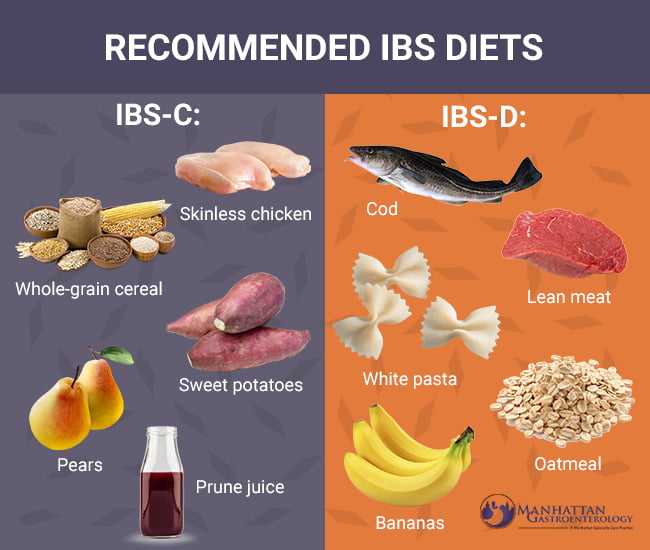Irritable bowel syndrome, or IBS, is a common disorder. And while IBS does no permanent damage to your intestines, it can be painful and even disabling for some people. Some of the symptoms include:
- Excessive gas and bloating;
- Cramping;
- Passing a stool with lots of mucus;
- Diarrhea;
- Constipation;
- Both diarrhea and constipation (one following the other).
If you’re suffering from digestive issues, the first thing you should do is book an appointment with a reputable New York City gastroenterologist like our doctors at Manhattan Gastroenterology. You want to ensure that any abdominal pain or uncomfortable symptoms are not due to an acute illness. Sometimes the more serious diseases have warning signs that mimic irritable bowel syndrome.
Unfortunately, there is no known cure for IBS. But specialists like our doctors at Manhattan Gastroenterology can recommend lifestyle changes to help you manage the disease. While IBS affects everyone differently, there are commonalities among IBS sufferers that include eating certain foods, being under stress, and going through hormonal changes during a woman’s menstrual cycle.
To find out what causes your symptoms, you first need to discover which foods and situations are related to the discomfort. And that’s exactly what a food journal can help you accomplish.
What Is a Food Journal?

Gain Control of Your Irritable Bowel Syndrome by Keeping a Food Journal
A food journal is a detailed list of the foods you eat during the day, as well as a description of the corresponding bowel movements. A detailed journal also gives you space to list your medications and describe your mood, including any stress you’re enduring.
Fill out the journal day by day for about two weeks. Download a sample food journal here, courtesy of the International Foundation for Functional Gastrointestinal Disorders. The information you jot down every day becomes a roadmap to your lifestyle.
A food journal can help you track which foods are causing you discomfort. A food journal can also help you discover the situations or medications that harm your digestive system. Armed with this information, you can take steps to avoid the things that are causing problems. Only then can you better control the outbreak of IBS symptoms.
Getting Control of Your Life With Irritable Bowel Syndrome
A diagnosis of IBS doesn’t mean you have to give up everything you love to eat. It just means you have to manage your diet and your stress level. It means you have to pay attention to what you eat. Then, a food journal is just a means to an end: more symptom-free days and more hours without worry. A food journal gives you knowledge, and in this case, knowledge is indeed power. Knowing what foods and situations to avoid gives you the power to control your IBS symptoms. It lets you get on with your life.

